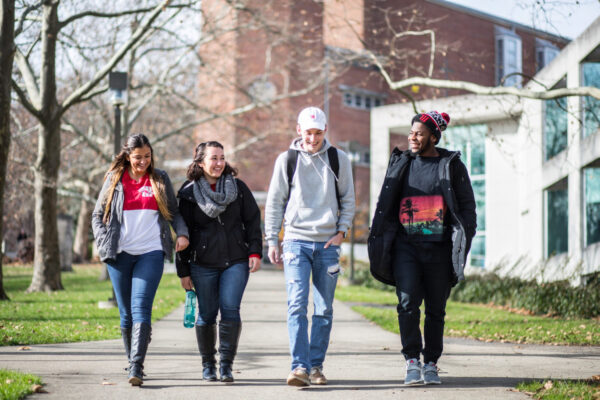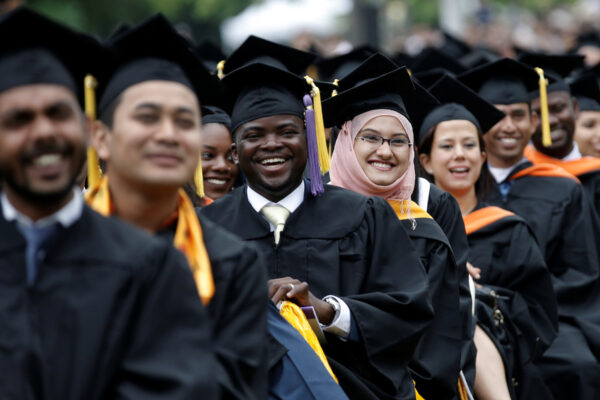New Report Draws Attention to the College Experiences of LGBTQ Students
Title: Experiences of LGBTQ People in Four-year Colleges and Graduate Programs
Authors: Kerith J. Conron, Kathryn K. O’Neill, Abbie E. Goldberg, and Rubeen Guardado
Source: The Williams Institute (based at the University of California, Los Angeles School of Law)
A new report from the Williams Institute draws attention to the challenges faced by students who identify as LGBTQ compared to their non-LGBTQ peers.
These challenges—especially for students with intersecting identities—may impact LGBTQ students’ academic journeys, mental health, and sense of belonging. Using data from the Access to Higher Education Survey, the authors looked at the student experiences of both LGBTQ and non-LGBTQ respondents ages 18-40.
Among the findings from the analysis:
- LGBTQ people were more likely than non-LGBTQ peers to pick a college or graduate school in a more welcoming city or state.
- 32.6 percent of LGBTQ people who attended a four-year college reported experiencing assault, bullying, or harassment, compared to 18.9 percent of their non-LGBTQ peers.
- About 20 percent of LGBTQ people who were victimized reported their college had an “easily accessible, visible, and known procedure” for reporting LGBTQ-specific bias incidents and hate crimes separate from general reporting procedures.
- LGBTQ people who attended a four-year college reported a greater likelihood of living on campus (59.5 percent), compared to 46.4 percent of non-LGBTQ peers. Among students living on campus, LGBTQ people were more likely to experience assault, bullying, or harassment (25.2 percent) compared to non-LGBTQ peers (11.3 percent).
- Generally, LGBTQ individuals who attended a four-year college and/or graduate school reported the availability of LGBTQ resources more frequently than non-LGBTQ peers.
- LGBTQ people were less likely (71.9 percent) than non-LGBTQ peers (83.5 percent) to experience a sense of belonging while attending their four-year college.
- Compared to non-LGBTQ peers, LGBTQ people were more likely to report mental health challenges, with about 35 percent reporting their mental health was not good most or all of the time they attended college.
- Among graduate students, LGBTQ individuals were about four times more likely to report not having good mental health for most or all of their attendance (34.1 percent) than non-LGBTQ peers (8.6 percent).
To ensure greater support and access to resources for LGBTQ students, the authors conclude the report with several recommendations to improve campus environments, including designating gender-neutral restrooms, administering a campus climate survey, and hiring or training medical staff and mental health counselors to competently provide care to LGBTQ students.
To read the full report and recommendations, click here.
—Danielle Melidona
If you have any questions or comments about this blog post, please contact us.


